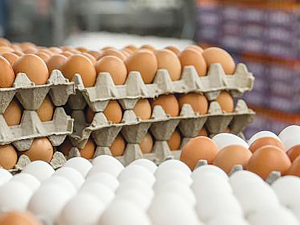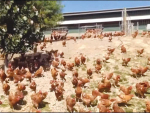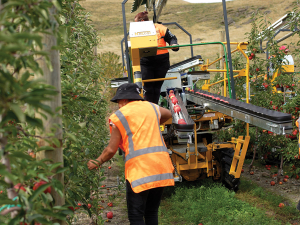This results from NZ banning conventional cages, according to the industry research company IBISWorld.
It says while phasing out conventional cages is expected to benefit farmers producing free range eggs, consumers will inevitably have to pay more for their eggs.
NZ egg producers are in transition, phasing out all conventional cages by 2022 under the Code of Welfare for Layer Hens, in force since October 1, 2018. Many farmers have cut flocks or temporarily ceased egg production to change to farming systems with better animal welfare, such as colony cages and barns.
Tom Youl, a senior industry analyst at IBISWorld, says the conventional cage ban has resulted in a sharp decline in egg production. He says changing from conventional cages to barn or free-range farms can be expensive.
The Ministry for Primary Industries says buildings and equipment for colony cages could cost up to $660,000 for small farms and up to $8.5m for large farms. Some egg producers have quit the business, contributing to a 14% decline in NZ’s hen flock in 2018-19.
But IBISWorld says strong demand for eggs has encouraged many farmers to remain or resume egg production with new farming systems. Its research shows demand for eggs rising for ten years.
“Eggs have long been a cost-effective source of protein, and recent research suggesting eggs have little effect on cholesterol levels has boosted consumption,” Youl says.
“Also, eggs have become a diet staple of many weight loss programmes, increasing egg demand more in the past five years.”
But greater demand and lower supply have pushed up farmgate prices.
“Operators in supermarkets, grocery stores and convenience stores have understandably passed on these price rises to consumers. But strong demand and price growth have encouraged non-conventional cage farmers to increase production, partially offsetting production declines.”
Overall egg production is expected to fall at an annualised 1.4% over the five years 2019-20.
How do you like yours?
IBISWorld expects the phasing out of conventional cages to continue the trend of consumers buying free-range eggs instead of caged eggs.
Currently, 75% of NZers buy cage-free eggs at least some of the time, and 25% buy only free-range eggs, says a report by Consumer NZ.
This trend is despite free-range eggs costing much more than caged.
The Egg Producers Federation estimates a dozen free-range eggs cost $6.89 versus $3.35 for a dozen eggs from caged hens.
“And consumers may encounter issues with reliability of produce,” Youl says. “Free-range egg producers have to contend with issues that caged egg farmers rarely experience – weather, food contamination, diseases and a higher mortality rate of hens.”



















